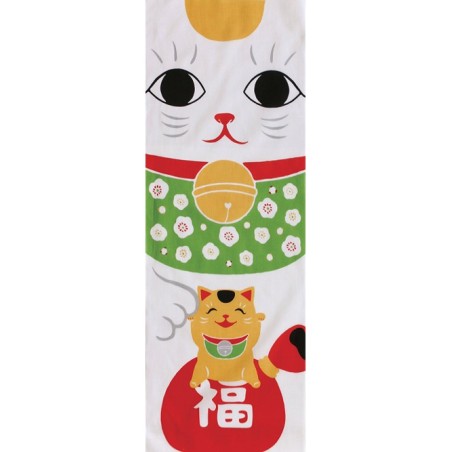


Tenugui - Japanese traditional rug thin towel or cloth.
A common item in Japanese homes and can be used anywhere in the household. It is often used as a towel in the kitchen, as an interior decoration or as packaging to make gifts extra special.
This multifunctional cloth can also be folded in different ways and can be used as a fashion accessory.
Material: 100% cotton - Made in Japan
Dimensions: 35 x 100 cm

Shopping Secure Certificate

We ship within 1-4 business days

Our Shipping Partner
Tenugui - Japanese traditional rug thin towel or cloth.
A common item in Japanese homes and can be used anywhere in the household. It is often used as a towel in the kitchen, as an interior decoration or as packaging to make gifts extra special.
This multifunctional cloth can also be folded in different ways and can be used as a fashion accessory.
Material: 100% cotton - Made in Japan
Dimensions: 35 x 100 cm
The tenugui is a traditional Japanese textile, usually made of thin cotton. This long, narrow cloth has been used for centuries and has a rich history. Tenugui are often printed with vibrant patterns, ranging from nature motifs to geometric designs, and even scenes from Japanese folklore. The origins of the tenugui date back to the Heian period (794-1185), when it was mainly a privilege of the upper class. In the Edo period (1603-1868), the tenugui became accessible to the common people, thanks in part to improvements in cotton production and printing techniques.
The versatility of the tenugui is one reason for its enduring popularity. It is traditionally used as a towel, headband, handkerchief, and even as a wrapping cloth for wrapping gifts. In modern times, the tenugui is also popular as a decorative item; it is often hung on the wall or framed. In addition, it is still widely used by practitioners of traditional Japanese arts, such as tea ceremonies and martial arts, where the tenugui often symbolizes devotion and simplicity.
Tenugui represents a fusion of functionality and aesthetics and remains a beloved symbol of Japanese culture in both everyday and ceremonial contexts.